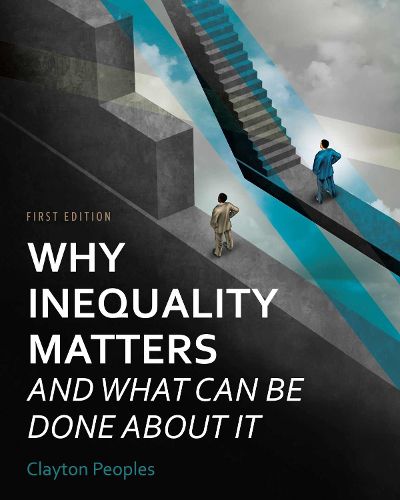Readings Newsletter
Become a Readings Member to make your shopping experience even easier.
Sign in or sign up for free!
You’re not far away from qualifying for FREE standard shipping within Australia
You’ve qualified for FREE standard shipping within Australia
The cart is loading…






Why Inequality Matters and What Can Be Done About It provides readers with an exploration of the causes and consequences of social and economic disparities. It scrutinizes patterns of inequality in the U.S. and across the globe and describes why such disparities are significant and how they perpetuate. The book provides a comprehensive look at inequality's impact on social mobility and justice, poverty and health implications, crime, political structures, and the media's role in these dynamics.
Substantive topics include an in-depth analysis of economic disparity, the intersection of inequality with race and gender, and systemic elements influencing mobility and distributive justice. Further, it examines intergroup relations, the patterns of poverty, and the interplay between wealth and health. Discussions cover political and power structures, knowledge systems, ideology, and the influence of media. Finally, the text suggests ways to engage in change through structures like social movements, policy reforms, and community action such as volunteerism and philanthropy.
Designed for a range of courses in the social sciences, particularly sociology, political science, and economics, Why Inequality Matters and What Can Be Done About It is ideal for both undergraduate and graduate levels. Its in-depth research and focus on both the systemic and individual factors of inequality make it a valuable tool for students seeking to understand this complex social phenomenon.
$9.00 standard shipping within Australia
FREE standard shipping within Australia for orders over $100.00
Express & International shipping calculated at checkout
Why Inequality Matters and What Can Be Done About It provides readers with an exploration of the causes and consequences of social and economic disparities. It scrutinizes patterns of inequality in the U.S. and across the globe and describes why such disparities are significant and how they perpetuate. The book provides a comprehensive look at inequality's impact on social mobility and justice, poverty and health implications, crime, political structures, and the media's role in these dynamics.
Substantive topics include an in-depth analysis of economic disparity, the intersection of inequality with race and gender, and systemic elements influencing mobility and distributive justice. Further, it examines intergroup relations, the patterns of poverty, and the interplay between wealth and health. Discussions cover political and power structures, knowledge systems, ideology, and the influence of media. Finally, the text suggests ways to engage in change through structures like social movements, policy reforms, and community action such as volunteerism and philanthropy.
Designed for a range of courses in the social sciences, particularly sociology, political science, and economics, Why Inequality Matters and What Can Be Done About It is ideal for both undergraduate and graduate levels. Its in-depth research and focus on both the systemic and individual factors of inequality make it a valuable tool for students seeking to understand this complex social phenomenon.